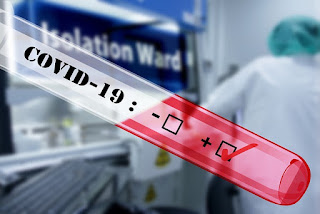The cold and flu season and we wanted to talk about how to identify the difference between Coronavirus Vs Flu Symptoms but also the corona virus has been on everyone's mind. What is it how can we protect ourselves from it? This is an important one, I mean it's just cold and flu and it can be brutal, if you're not taking the right precautions. I'm goanna start with the basics. How do you know if it's the flu or if it's a cold, that's a tough one? Actually, the colds and flus are both viral based generally but we would generally say the colds are less severe than the flus and the other option also is the bacterial stuff. Viruses cannot be treated with traditional antibiotics bacteria’s can be its often time.
Coronavirus Vs Flu Symptoms:
| Allergies | Coronavirus | Flu |
|
|
|
Different symptoms though are similar symptoms generally your colds are runny nose. A bit of a coffin the flu we call it a flu because you can have severe fevers as well but you can get nausea. You can get throwing up, you can get diarrhea's and it's just more severe. That kind of pain that body appeared right it doesn't go away; you can't get over it now. A lot of people are worried about just it contracting anything. I want to talk about when these things are contagious. When you have the cold and flu and you are contagious are you actually showing symptoms or does when you're contagious are all the symptoms gone already well. I think in general we generally say that when you have symptomatic you are more contagious.
Prevention and Your Immune System:
Let's talk about prevention and your immune system. There's so much you can do diet wise. Let’s stick to the basics make sure you're getting enough fruit and vegetable into your day. Then you're getting all the phytonutrients you need like vitamin C carotenoids. The things that actually help boost your immune system. I recommend at least six servings a day of fruits and vegetables. The serving is actually a lot smaller than you think, it is absolutely right typically the size of your palm. Reducing sugar, reducing alcohol those impact your white blood cell activity. Your immune system activity right and another one is introducing garlic into your cooking and not overcooking the garlic.
Conclusion:
Coronavirus has gotten a lot of international attention recently because this is a brand-new virus that we haven't seen before. It's closely related to SARS(Severe Acute Respiratory Syndrome) and to MERS(Middle East Respiratory Syndrome). It can cause mild illness, like common cold. Almost all patients had fever. About 3/4 of patients have cough. About half of patients have shortness of breath and about half of patients have body ache and fatigue. If you're a patient who has fever plus cough and you've recently been to China, then you should contact to your doctor or hospital. They'd be able to help determine whether you need to be seen in the Urgent Care or the Emergency Room. People who have coronavirus are actually spreading it. That's why it's important for you to get diagnosed, so that we can get those people isolated. That they're not transmitting the virus to other people.

